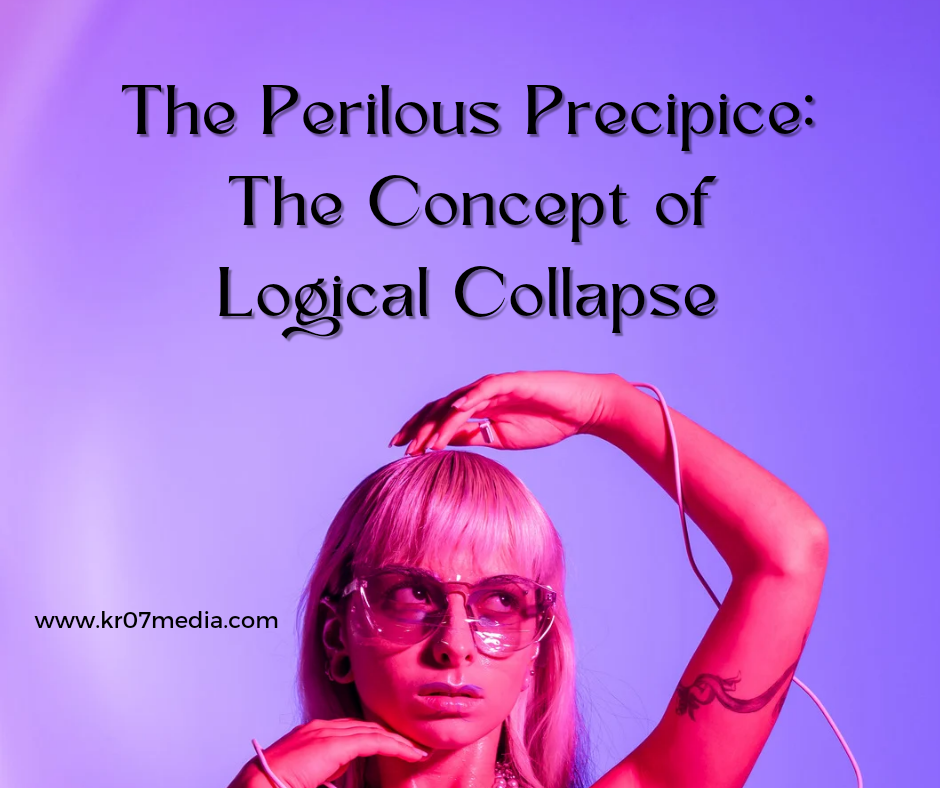Introduction
In the realm of philosophy and critical thinking, the concept of logical collapse stands as a formidable and perplexing challenge. It is a phenomenon that occurs when a seemingly coherent argument or system of thought unravels, revealing internal contradictions or inconsistencies. Logical collapse not only poses a threat to the foundations of reasoning but also has profound implications for various fields, from mathematics to ethics. In this article, we will delve into the intricacies of logical collapse, explore its manifestations, and discuss its implications.
The Anatomy of Logical Collapse
Paradoxes:
Logical collapse often begins with paradoxes – statements or situations that seem self-contradictory yet resist easy resolution. The most famous of these is the paradox of the liar, where a statement asserts its own falsity, leading to a logical conundrum. Other examples include the Barber Paradox and Russell's Paradox, which challenge the foundations of set theory.
Inconsistent Systems:
In some cases, logical collapse occurs when a previously consistent system of thought encounters a contradiction that renders it unsustainable. For example, the discovery of inconsistencies in Euclidean geometry led to the development of non-Euclidean geometries, revolutionizing mathematics.
Ethical Dilemmas:
Moral philosophy also grapples with logical collapse, particularly in the realm of ethical dilemmas. The famous trolley problem, where one must choose between two morally conflicting actions, demonstrates how moral systems can collapse when faced with impossible choices.
Manifestations of Logical Collapse
Gödel's Incompleteness Theorems:
In the early 20th century, Kurt Gödel's incompleteness theorems demonstrated that in any formal mathematical system, there are statements that cannot be proven true or false within that system. This shattered the hope of a complete and self-contained mathematical foundation, hinting at the inherent limitations of logical systems.
The Ship of Theseus Paradox:
This ancient thought experiment questions the identity of an object as its constituent parts are gradually replaced. It raises questions about identity and change that can lead to logical collapse when trying to define what makes something what it is.
Moral Dilemmas and Relativism:
Ethical systems can collapse when confronted with moral relativism – the idea that moral truths are subjective and context-dependent. This can lead to challenges in constructing consistent ethical frameworks.
Implications and Significance
Limits of Human Knowledge:
Logical collapse highlights the inherent limits of human knowledge and reason. It suggests that there may be questions and problems that we can never fully resolve or understand within our existing systems of thought.
Evolution of Thought:
Paradoxes and logical collapse often lead to intellectual breakthroughs. When a system breaks down, it can pave the way for the development of new and more robust frameworks, as seen in the transition from classical to non-Euclidean geometry.
Philosophical Humility:
Logical collapse humbles us by reminding us that our understanding of reality is always provisional. It encourages open-mindedness, intellectual curiosity, and a willingness to revise our beliefs in the face of new evidence or insights.
Conclusion
Logical collapse is a fascinating and challenging concept that underscores the complexity of human reasoning and the ever-evolving nature of knowledge. It serves as a reminder that our intellectual pursuits are a journey filled with twists, turns, and unexpected discoveries. While logical collapse may shake the foundations of our beliefs, it also propels us forward on the quest for deeper understanding and more coherent systems of thought. Embracing the uncertainty and ambiguity that logical collapse reveals can lead to intellectual growth and a richer appreciation of the complexities of the world around us.



